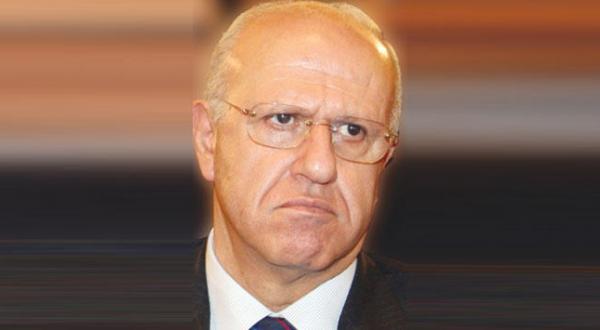
By Daily Star Lebanon
Prime Minister Tammam Salam Friday demanded a speedy retrial for former Information Minister Michel Samaha because of the "delicate" nature of the case, a day after angry protesters blocked roads across Beirut over Samaha’s release on bail.
“I look forward, like all Lebanese, to have a judicial authority that only bows to the power of right and works to serve justice and implements laws to protect the individual and society,” Salam said in a statement after meeting with General Prosecutor Samir Hammoud, who is also the deputy head of the Higher Judicial Council.
Hammoud briefed the premier during their meeting on the Military Court’s decision Thursday to grant bail to Samaha, who was convicted last year on terrorism charges and sentenced to four and a half years in jail.
By english.aawsat.com
The ruling issued by Beirut Military Court to release Michel Samaha, who was the Information Minister from 1992 to 1995, in exchange for a bail payment of 150 million Lebanese pounds ($99,463), appaled politicians and civilians in Lebanon.
Prominent officials from March 14 Coalition denounced the court’s ruling and protests blocked some roads in Beirut and other cities objecting Michel Samaha’s release.
From his part, Future Movement leader, former Prime Minister Saad Hariri described the Military Tribunal’s decision to release him as a “disgrace”, adding: “This unanimous decision is a free gift to the criminal.”
The Progressive Socialist Party chief, Walid Jumblatt, said that this ruling “legalizes crime”. “Such a decision constitutes a profound challenge to the grave efforts undertaken by the security services in combating terrorism”, Jumblatt lamented.
Minister of Justice, Ashraf Rifi, considered that the Military Court is dead, saying: “I declare the death of the Military Court of Appeal, since it seems to discriminate between crimes, perpetrated by friends or by enemies.”
In a common matter, a judicial source told Asharq Al-Awsat that the ruling was not expected to be issued from the Court of Cassation, which is headed by a judge known for his expertise; especially that the court had the video and audio records of his confessions during interrogations in the previous hearing session.



